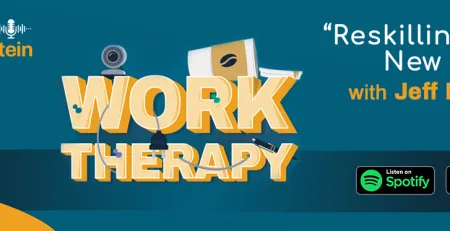A Guide to Using Assessments to Improve Your Hiring Decisions
It is commonly said that the war for talent is fiercer than ever before, and that sentiment is reflected in the enormous investments companies make to attract the best candidates available. But these investments all rest on an assumption that may not be challenged enough: can we reliably, accurately, and fairly distinguish “talent” from the rest of the bunch? Hiring the best talent is more difficult in execution than most believe it to be. While many hiring processes can marginally distinguish between qualified and unqualified candidates (sometimes no better than flipping a coin), they can also unintentionally introduce bias and noise.
Hiring is all about making predictions. When you extend an offer to a candidate, you’re likely predicting that they are qualified and have the necessary knowledge, skills, and abilities to fulfill the role’s requirements. You may also predict they will stay at the company longer than six months, work well with their team, managers, and direct reports, and represent the company well. You have greater confidence that they will meet or exceed your expectations more so than any of the other candidates you might have interviewed.
Gathering information to make quality hiring predictions
To identify the right talent for your needs and make a confident prediction about their performance, you need to gather information. Ideally, that information will be high quality, directly tied to what you are predicting, and available across all candidates to provide a reliable benchmark when comparing them. It should also be a legitimate reflection of the candidate’s knowledge, skills, or abilities and be difficult to fake. Unfortunately, many commonly used selection processes, like resumes and unstructured interviews, do not provide sufficient information for hiring managers to distinguish between candidates and make accurate predictions.
This decision challenge is where the promise of assessments lies. When a company uses assessments for hiring, they believe that their investment in these tools will improve the accuracy of their hiring predictions, resulting in greater performance, lower turnover, and a variety of other benefits that come with making better hiring decisions. Other potential benefits include a more efficient selection process, reduced bias, and greater protection against litigation. When used properly, assessments can add tremendous value, give organizations a competitive advantage in a tight labor market, and deliver a great return on investment.
But, as with any tool, some assessments can deliver on their promises better than others. If you are creating a hiring process, the onus is on you to ensure that the tools you use are appropriate for the roles you are hiring for, that they are fair and reliable, and that they are administered and interpreted correctly. Ultimately, assessments should improve the accuracy of your selection process and help you make better, more confident hiring predictions.
Your guide to confidently using assessments during the selection process
Considering the questions below will help you make an informed decision about whether to use assessments in your hiring process, the most appropriate assessments to choose, and the best ways to administer and interpret them. The checklist is informed by recommendations from the EEOC (Equal Employment Opportunity Commission), APA (American Psychological Association), and SHRM (The Society for Human Resource Management).
Note: While the term “assessments” is quite broad and can include many different types of tools, the following considerations can apply across the board, whether the assessment in question is a personality test, situational judgment test, cognitive ability test, or any other measurement instrument.
Does it make sense to use an assessment in the selection process for this job?
- Will it improve your existing selection process (e.g., make it more efficient, accurate, objective, and legally defensible)?
- Does the importance of the hiring decision warrant the cost of the assessment?
- Can the assessment be administered without fear of the applicant faking?
- Does the job require knowledge, skills, abilities, or other competencies (KSAOs) that are difficult to train, and therefore must be identified when selecting candidates?
What is your purpose in using this assessment?
Consider the following:
- What work tasks are individuals required to perform on the job? What KSAOs do individuals need to possess to perform those tasks effectively?
- Does the assessment measure the KSAOs that you are looking for? Does the assessment measure the tasks individuals are required to perform on the job?
- How will the assessment results be used to inform the final selection decision? Is it supportive and complementary to other components of the selection process?
What validity and reliability evidence are there to support the usage of the assessment?
Consider the following:
- Is the assessment measuring what it is designed to measure, and can it predict an individual’s job performance?
- Do you plan to use the assessment for only a single purpose, in only a single context? If not, can the assessment be used appropriately across multiple and/or global settings? Do you have the validity evidence to support the use of the assessment in various settings for various purposes?
- If a person retakes the same assessment, will they get a similar score, such that the score is reliable and stable?
- Does the assessment provide hiring or fit recommendation? Can the publisher provide evidence that the recommendation can make a meaningful distinction between candidates and their performance?
- Does the publisher provide complete documentation on the theory, development process, and evidence of reliability, validity, and fairness?
How will the usage of the assessment impact an applicant’s perception of your organization?
Consider the following:
- Is the linkage between the assessment and future job performance obvious to applicants?
- Will the addition of the assessment negatively impact applicants’ experience with the selection process (e.g., overly long administration time, outdated process, inconvenience)?
- Will applicants view the usage of the assessment favorably, or will they question the appropriateness or necessity of the tool?
How does your selection process and the assessment you are considering comply with federal regulations and professional or ethical standards regarding adverse impact, disability protection laws, and data security?
Consider the following:
- What evidence is provided regarding fairness? Is the assessment fair and unbiased in the context in which it is being used, not showing an adverse impact against protected groups (e.g., race, ethnicity, religion, gender, sexual orientation, national origin, age, disability)?
- Can you eliminate or justify this adverse impact if there is an adverse impact? Can you demonstrate the job-relatedness and business necessity for continued measurement of this construct using this specific tool?
- Who in your organization possesses the qualifications or training to administer the assessment and fairly interpret the results? If no one is available, do you have the resources (e.g., budget and time) to provide people with the training required?
- What resources will you need (e.g., location, equipment, personnel) to provide a suitable testing environment for all applicants (including those with varying reading levels, cultural backgrounds, language barriers, or who may need accommodations)?
- How will you collect and store the data to maintain the confidentiality and security of the assessment results?
Having considered the different factors shared above, are you satisfied that incorporating talent assessment into your selection process is right for you? Do you feel you have the resources to ask the right questions and use assessments to make better hiring predictions? And do you have a system in place to help evaluate if they work for you and provide a return on investment?
MHS’ Talent Solutions Consultants can provide technical information on the validity, reliability, and fairness of all MHS tools and can help advise you on their use in your hiring process. We also provide services to help you assess and interview candidates and validate assessments in your company.
Get in touch with a member of our team.
Disclaimer: MHS does not provide legal counsel and accepts no liability that may arise from the use of their assessments in the hiring process. Consult legal counsel and ensure that your practices meet the legal requirements for your jurisdiction.
Additional Resources:










